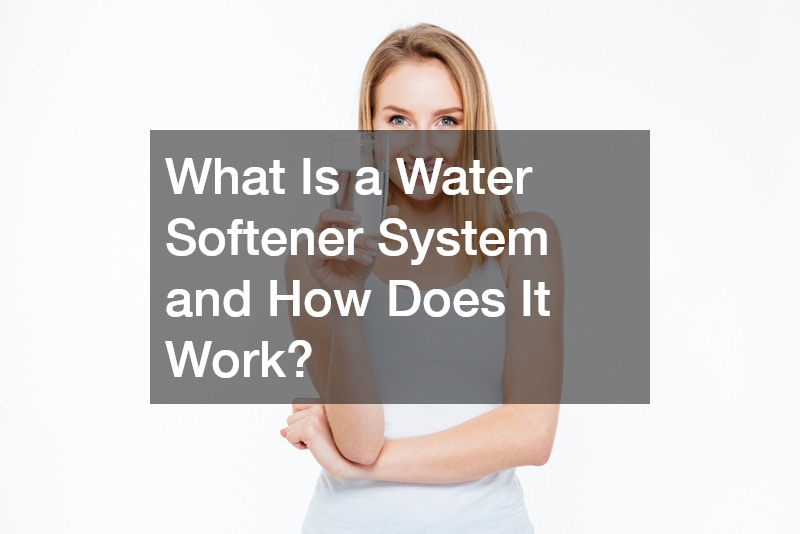
Water is an essential resource that contributes to the comfort and functionality of our daily lives. However, the quality of water differs significantly depending on geographical locations. In many areas, the water is considered "hard" because it contains high levels of minerals such as calcium and magnesium. Hard water can cause several issues in households, from scaling on appliances to reduced effectiveness of soaps and detergents. A water softener system is a modern solution that addresses these problems by treating hard water in a way that reduces its mineral content.
A water softener system is a specialized home appliance designed to remove minerals from hard water, thereby softening it. At its core, the system works by exchanging minerals that cause water hardness, like calcium and magnesium, with sodium or potassium ions.
Video Source
This exchange occurs within a water softener tank, which contains resin beads charged with sodium ions. As hard water passes through the tank, the resin beads attract and hold onto the calcium and magnesium ions, allowing softened water to flow out. It's a simple yet effective process that enhances not just water quality but also appliance efficiency.
The main component of any water softener system is the resin tank, where ion exchange takes place. These resin beads have the unique ability to trap positively charged calcium and magnesium ions and replace them with less disruptive sodium ions. Over time, the beads become saturated with the accumulated hardness ions and need to be regenerated. This regeneration process flushes the system with a saltwater solution that recharges the resin beads with sodium ions, readying them for another cycle of water softening. This regeneration typically occurs automatically based on the volume of water processed.
The type and size of a water softener system can vary widely depending on household needs. Some systems are designed for larger homes with high water demands, while others are compact for smaller apartments or homes. Choosing the right system involves considerations of water hardness levels, water usage, and space availability. Additionally, softener systems may differ in their reliance on either sodium or potassium salts for the ion-exchange process. These variations allow homeowners to select a system that best meets both their practicality needs and environmental preferences.
The functionality of a water softener system hinges on its ability to separate and replace mineral ions within the water. As water enters the system, it flows through a bed of specially formulated resin beads, which are negatively charged. These beads act like a magnet for the positively charged calcium and magnesium ions, drawing them out of the water. This initial stage is critical as it serves the primary function of the softening process. As calcium and magnesium ions are drawn from the water, they are replaced by sodium ions, thus achieving the desired soft water effect.
Regeneration is a vital process within any water softener system, ensuring continued efficient operation. After a period of use, the resin beads become saturated with collected hardness minerals and lose their effectiveness. The system then initiates a regeneration cycle where a concentrated saltwater solution is introduced to the resin tank. This brine solution forces the captured calcium and magnesium ions off the resin beads and replaces them with fresh sodium ions. This process not only cleans the beads but restores their ability to soften water effectively, ensuring the consistent production of soft water.
Implementing a water softener system offers numerous advantages that enhance household function and personal comfort. One of the most notable benefits is the prevention of scale build-up on appliances and plumbing systems. Scale can severely reduce the lifespan of household appliances such as washing machines, dishwashers, and water heaters, leading to higher maintenance costs and reduced efficiency. By softening the water, these costly issues can be mitigated, translating to increased appliance longevity and performance. Additionally, soft water improves the lathering and cleaning actions of soaps and detergents, resulting in cleaner clothes and dishes.
Finally, many users experience personal comfort improvements from using soft water in their homes. Soft water is gentler on the skin and hair, making bathing a more pleasant experience. For individuals with sensitive skin or conditions like eczema, reducing water hardness can alleviate symptoms and prevent irritation. The lack of mineral residues also means clothing feels softer and colors remain more vibrant, enhancing comfort and appearance. These quality of life enhancements, combined with the practical benefits, make water softener systems a valuable addition to any home.
.